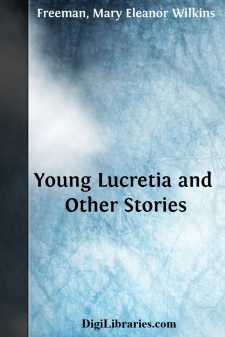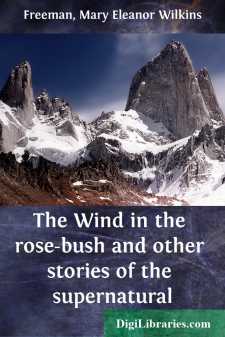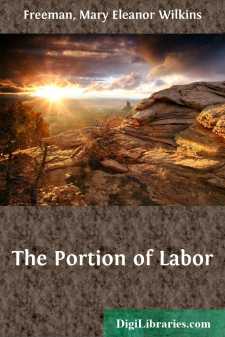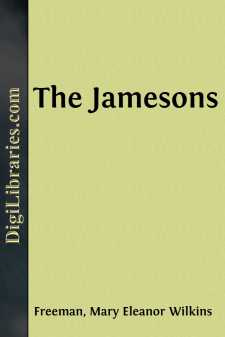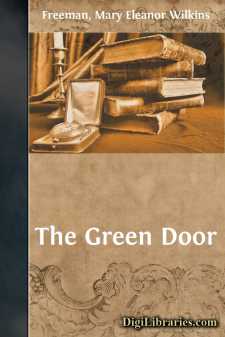Categories
- Antiques & Collectibles 13
- Architecture 36
- Art 48
- Bibles 22
- Biography & Autobiography 813
- Body, Mind & Spirit 142
- Business & Economics 28
- Children's Books 15
- Children's Fiction 12
- Computers 4
- Cooking 94
- Crafts & Hobbies 4
- Drama 346
- Education 46
- Family & Relationships 57
- Fiction 11828
- Games 19
- Gardening 17
- Health & Fitness 34
- History 1377
- House & Home 1
- Humor 147
- Juvenile Fiction 1873
- Juvenile Nonfiction 202
- Language Arts & Disciplines 88
- Law 16
- Literary Collections 686
- Literary Criticism 179
- Mathematics 13
- Medical 41
- Music 40
- Nature 179
- Non-Classifiable 1768
- Performing Arts 7
- Periodicals 1453
- Philosophy 64
- Photography 2
- Poetry 896
- Political Science 203
- Psychology 42
- Reference 154
- Religion 513
- Science 126
- Self-Help 84
- Social Science 81
- Sports & Recreation 34
- Study Aids 3
- Technology & Engineering 59
- Transportation 23
- Travel 463
- True Crime 29
Mary Eleanor Wilkins Freeman
Mary Eleanor Wilkins Freeman was a prominent American author known for her novels and short stories depicting New England village life in the late 19th and early 20th centuries. Her works often explored themes of female independence and the social dynamics within small communities, with notable pieces including "A New England Nun" and "The Revolt of 'Mother'." Freeman's writing earned her significant recognition, and she was one of the first women to be inducted into the National Institute of Arts and Letters.
Author's Books:
Sort by:
"Who's that little gal goin' by?" said old Mrs. Emmons. "That—why, that's young Lucretia, mother," replied her daughter Ann, peering out of the window over her mother's shoulder. There was a fringe of flowering geraniums in the window; the two women had to stretch their heads over them. "Poor little soul!" old Mrs. Emmons remarked further. "I pity that...
more...
PART I Opposite Miss Eudora Yates's old colonial mansion was the perky modern Queen Anne residence of Mrs. Joseph Glynn. Mrs. Glynn had a daughter, Ethel, and an unmarried sister, Miss Julia Esterbrook. All three were fond of talking, and had many callers who liked to hear the feebly effervescent news of Wellwood. This afternoon three ladies were there: Miss Abby Simson, Mrs. John Bates, and Mrs....
more...
THE WIND IN THE ROSE-BUSH Ford Village has no railroad station, being on the other side of the river from Porter's Falls, and accessible only by the ford which gives it its name, and a ferry line. The ferry-boat was waiting when Rebecca Flint got off the train with her bag and lunch basket. When she and her small trunk were safely embarked she sat stiff and straight and calm in the ferry-boat as...
more...
Chapter I Henry Whitman was walking home from the shop in the April afternoon. The spring was very early that year. The meadows were quite green, and in the damp hollows the green assumed a violet tinge—sometimes from violets themselves, sometimes from the shadows. The trees already showed shadows as of a multitude of bird wings; the peach-trees stood aloof in rosy nimbuses, and the cherry-trees were...
more...
THE POT OF GOLD. The Flower family lived in a little house in a broad grassy meadow, which sloped a few rods from their front door down to a gentle, silvery river. Right across the river rose a lovely dark green mountain, and when there was a rainbow, as there frequently was, nothing could have looked more enchanting than it did rising from the opposite bank of the stream with the wet, shadowy mountain...
more...
Chapter I On the west side of Ellen's father's house was a file of Norway spruce-trees, standing with a sharp pointing of dark boughs towards the north, which gave them an air of expectancy of progress. Every morning Ellen, whose bedroom faced that way, looked out with a firm belief that she would see them on the other side of the stone wall, advanced several paces towards their native land....
more...
ITHEY ARRIVE Until that summer nobody in our village had ever taken boarders. There had been no real necessity for it, and we had always been rather proud of the fact. While we were certainly not rich—there was not one positively rich family among us—we were comfortably provided with all the necessities of life. We did not need to open our houses, and our closets, and our bureau drawers, and give...
more...
In 1682, when I was thirty years of age and Mistress Mary Cavendish just turned of eighteen, she and I together one Sabbath morning in the month of April were riding to meeting in Jamestown. We were all alone except for the troop of black slaves straggling in the rear, blurring the road curiously with their black faces. It seldom happened that we rode in such wise, for Mistress Catherine Cavendish, the...
more...
Letitia lived in the same house where her grandmother and her great-grandmother had lived and died. Her own parents died when she was very young, and she had come there to live with her Great-aunt Peggy. Her Great-aunt Peggy was her grandfather's sister, and was a very old woman. However, she was very active and bright, and good company for Letitia. That was fortunate, because there were no little...
more...
Chapter I Banbridge lies near enough to the great City to perceive after nightfall, along the southern horizon, the amalgamated glow of its multitudinous eyes of electric fire. In the daytime the smoke of its mighty breathing, in its race of progress and civilization, darkens the southern sky. The trains of great railroad systems speed between Banbridge and the City. Half the male population of...
more...


